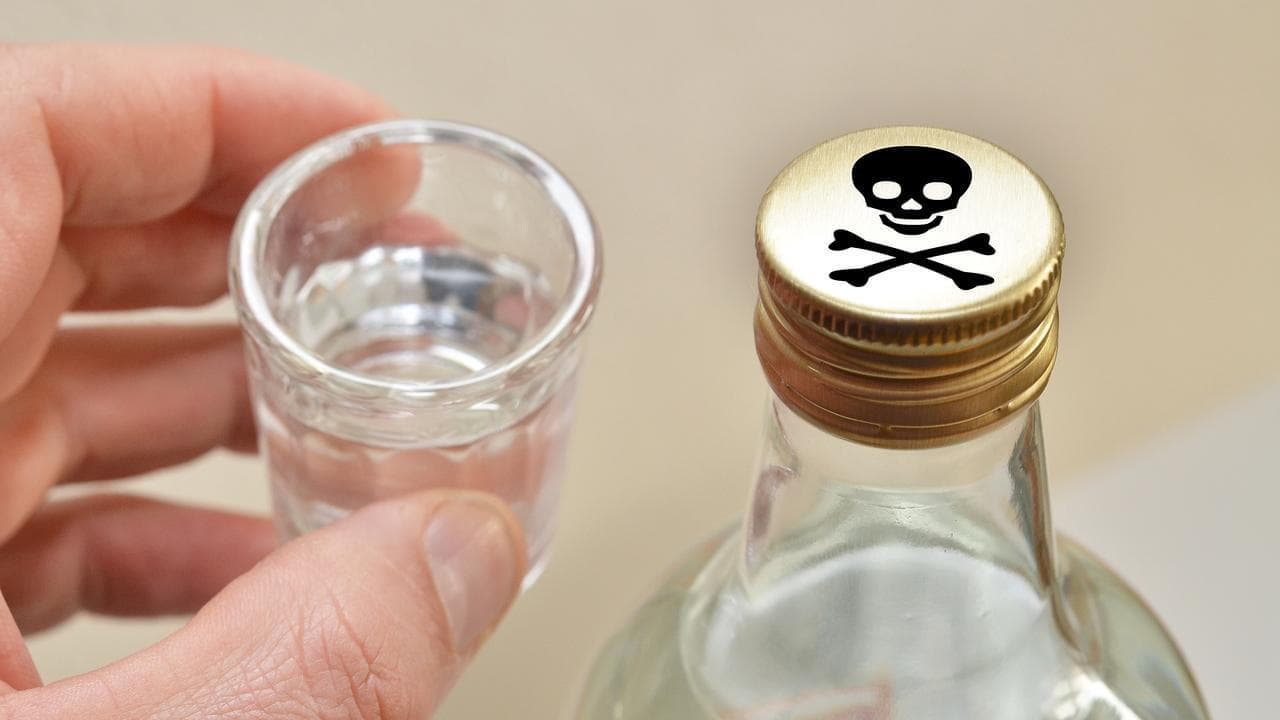The Statement
A video shared on social media suggests people who receive COVID-19 vaccines will have "trackers" injected into them, causing the recipients to become magnetic.
An Instagram post shared by an Australian user on May 10 features a video of a woman who takes what she claims is a magnet and sticks it to one of her arms.
"This is the arm I got the Pfizer shot in," she says, before unsuccessfully trying to attach the same object to her other arm. "We're chipped, we're all f***ed," the woman says at the end of the video.
Similar videos have been shared elsewhere on Instagram, for example here, while the trend has also appeared on Twitter and TikTok.

The Analysis
COVID-19 vaccines do not contain any metallic ingredients, nor do they contain microchips. Experts say such devices would be impossible to secretly deliver via vaccine injections using existing technology.
Dr Keith Chappell, a molecular virologist and affiliate academic at the Australian Institute for Bioengineering and Nanotechnology, told AAP FactCheck in an email that COVID-19 vaccines do not - and could not - contain injectable microchips or any device with tracking capacity.
Dr Chappell said the standard needle type used for vaccinations was a 25-gauge needle, which had an internal dimension of 0.3mm.
"The microchip would need to be a fraction of this to stop it from getting clogged. I don't think this is possible considering it would also need to involve a transmitter," he said.
The specifications for various 25-gauge needles show most have internal diameters of less than 0.3mm (see examples here, here and here).
Murdoch University professor of immunology Cassandra Berry told AAP FactCheck that in order for a microchip to pass through a syringe needle easily it would need to be smaller than 10 microns, or ten one-thousandths of a millimetre.
In comparison, the smallest current-generation RFID chips that have been developed are around 0.25mm in size. RFID tags can be used to store information that is then communicated to a nearby reader.
False claims around COVID-19 vaccines containing microchips have circulated since early in the pandemic, before inoculations to combat the disease were available. Many of the baseless suggestions were tied to billionaire Bill Gates after he mentioned the idea of "digital certificates" to identify people already tested for COVID-19. These microchip claims have been widely debunked, for example here and here.
Public health experts at Meedan Health Desk point out that injecting microchips into people as part of vaccinations would not be a practical tracking method due to technical and cost constraints - not to mention better alternatives for tracking and surveillance, like mobile phones, already being readily available.
Authorities such as Australia's Department of Health and the US Centers for Disease Control and Surveillance have also clarified that COVID-19 vaccines contain no microchips, software or tracking capabilities.
Dr Chappell said he believed the microchip suggestion was invented and spread by people who enjoyed misleading the gullible for amusement.
On the claim that COVID-19 vaccines have magnetic properties - or cause recipients to become magnetic - Prof Berry said neither the Pfizer nor AstraZeneca vaccines, both of which have been approved for use in Australia, contain any metallic ingredients.
"The composition of the vaccines varies amongst the different types, but none have 'magnetic' particles/particulates in order to track people," she said in an email.
"The AstraZeneca vaccine contents just contain particles of recombinant adenovirus ChAdOx1 and saline solution, and the Pfizer vaccine contains mRNA and a saline solution."
Documents on the vaccines published by the Therapeutic Goods Administration (TGA) show there are no metallic ingredients contained in either vaccine (here and here).
Queensland Health explains the chemical ingredients as falling under several broad subcategories: the Pfizer vaccine contains lipids (fats), salts and sugar in addition to the mRNA, while the AstraZeneca vaccine contain emulsifiers, preservatives, amino acids, sugar and salt in addition to the modified adenovirus.
Meedan Health Desk experts note a substantial amount of metal would be needed in a vaccine in order for it to attract a magnet, and this quantity far exceeds any amount that could possibly be present in a single vaccine dose.
Similar claims that COVID-19 vaccines contain microchips and can make recipients magnetic have been repeatedly debunked (see here, here and here), while AAP FactCheck has also previously disproved suggestions vaccines are being used as a trojan horse to implant tracking microchips in people.

The Verdict
COVID-19 vaccines do not contain microchips nor do they include metals that could potentially attract magnets.
Experts say it would be impossible for microchips with tracking capabilities to be delivered as part of the vaccinations, while doses are also too small to conceivably contain enough material to attract magnets even if the treatments included metallic components.
False - Content that has no basis in fact.
AAP FactCheck is an accredited member of the International Fact-Checking Network. To keep up with our latest fact checks, follow us on Facebook and Twitter.












